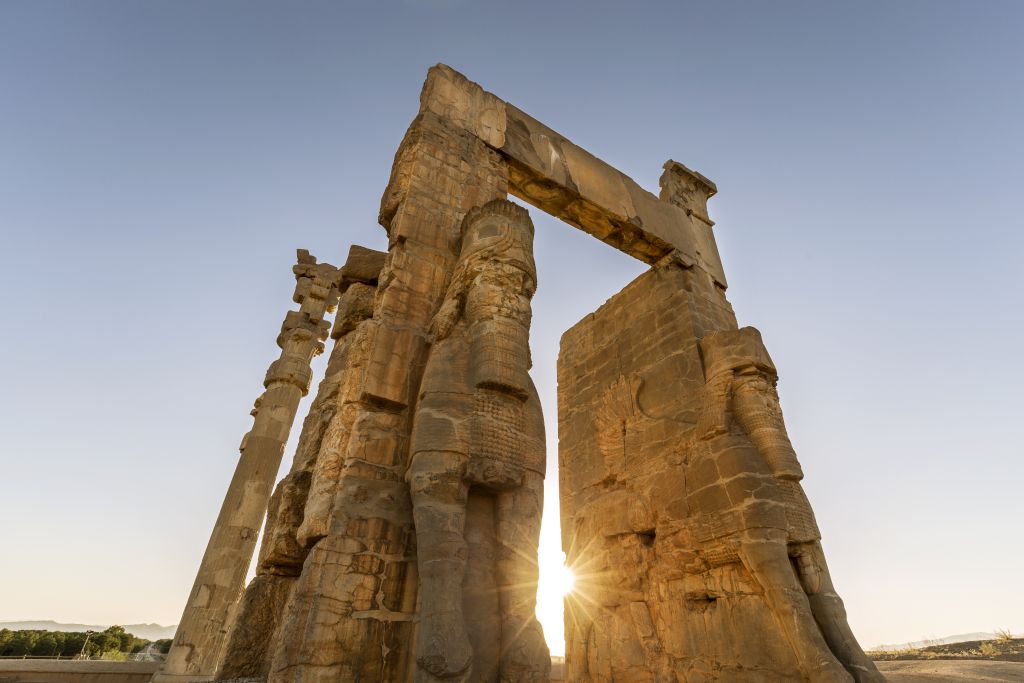Όπως ανέφερα σε πρόσφατο post μου, το όνομα του Ίον (μάλλον ‘Γιον’ σε πρώιμη μορφή) από τον οποίο πήραν το όνομά τους οι Ίονες (ή πιο σωστά Ιόνες), οι πρώην Αιγιαλείς Πελασγοί, είναι σημιτικό με ρίζα το ‘Ιό-‘ (‘Yoḥ-‘)* ως προς τη σημασία του ‘αφέντης, κύριος, άρχοντας.’
Η ίδια ακριβώς λεξική ρίζα στην αρχή εμφανίζεται μάλιστα και σε μερικά σημαντικά σημιτικά ονόματα όπως για παράδειγμα το Johan(n)an (‘Yōḥānān’) το οποίο αποδίδεται σε γνωστά αντίστοιχα ‘δυτικά’ ονόματα ως Ιωάννης, Giovanni, John, Johan(n) και Johannes μεταξύ άλλων.
Το όνομα αναλύεται ως ‘Yο-ḥa’nan’ (σε κάποιες σημιτικές/εβραϊκές διαλέκτους τονισμένο αντιθέτως ως ‘Yο-‘ḥanan’) που αποδίδεται ως ‘Ο Άρχοντας/Κύριος (‘Yoḥ-‘) είναι φιλεύσπλαχνος (‘-ḥa’nan’), όπου το πρώτο συστατικό (εναλλακτικά και ‘Yeḥ-’) αποτελεί μια σύντομη μορφή του θεού Yahweh (ή Yehovah).
Ωστόσο, το όνομα εμφανίζεται παλαιότερα και ως Yeho-cha’nan ή Yo-cha’nan όπου ‘cha-‘nan’ (‘κ(χ)α-νάν’) μπορεί να σημαίνει επίσης ‘βασιλεύει, κυριαρχεί’ από το ρήμα ‘k(h)ana’ που έχει τη σημασία ‘κυριαρχώ, κατέχω, υποτάσσω’ ως προς την απόδοση ‘Ο Yoḥ (Άρχοντας) βασιλεύει/κυριαρχεί’ κατά την άποψή μου.
Ο Yahweh (ίσως και Yohweh) ή Yehovah (Ιεχωβά στη γλώσσα μας) ήταν ένας πολεμικός και καιρικός θεός που οι Ισραηλίτες και Ιουδαίοι υιοθέτησαν στο πολυθεϊστικό τους σύστημα μέσω των Βεδουίνων κατά τον 14ο αιώνα περίπου π.Χ. πριν αργότερα ‘συγχωνεύσουν’ με τον κύριο θεό τους El γύρω στον 10ο ή 9ο αιώνα π.Χ. και τελικά επικρατήσει ο ίδιος σαν μόνος θεός τους από τον 6ο αιώνα π.Χ.
Και όπως μπορεί να καταλάβατε, ο Yahweh ή Yehovah είναι ο θεός που γνωρίζουμε ως… ‘Θεός’ στη χριστιανική θρησκεία, όπου το τελευταίο δεν είναι τίποτα άλλο από ένα επίθετό του (όπως και ‘Κύριος’). Ενδεχομένως, πάντως, το όνομά του να είναι ουσιαστικά ‘Yoḥ’ ή/και ‘Yeḥ’ με το Yahweh ή Yehovah να αποτελεί μια ‘προέκταση’ με τη σημασία ‘Ο Άρχοντας υπάρχει.’
Θα πρέπει να σημειωθεί ότι και το όνομα Canaan (λατινικά), Καναάν (ελληνικά) ή Χαναάν (Κοινή), ανάμεσα σε διάφορες παραλλαγές, έχει την ίδια ρίζα με το δεύτερο συστατικό (‘-chanan’) και πολύ πιθανώς σημαίνει ‘κατεχόμενη/δική μας γη’ ή ‘πεδινές περιοχές’ (που βρίσκονται χαμηλά).
Από τα παραπάνω έτσι προκύπτει, με δεδομένη τη ‘βραχύτητα’ του ‘ο,’ ότι το Ιωάννης (όπως και το Ιωάννα) λανθασμένα αποδίδεται με ‘ω’ και κανονικά θα έπρεπε να γράφεται με ‘ο’ ως Ιο-άννης (και Ιο-άννα αντίστοιχα), μια μορφή που υπάρχει.
Η ίδια ρίζα ‘Yoḥ-‘ ή ‘Yeḥ-‘ εμφανίζεται επίσης και στο όνομα Yo-shua ή Ye-shua (Yeshu/Yešu, με ουρανικό ‘σ,’ στα Αραμαϊκά) που δεν είναι άλλο από το (Βιβλικό) σημιτικό όνομα του Ιησού με τη σημασία ‘Ο Άρχοντας (Yoḥ/Yeḥ) σώζει’ σε αναφορά με το θεό Yahweh.
Η ηχητική απόδοση του Ιησούς ως ‘Ι-ι-σούς’ στη γλώσσα μας οφείλεται στην Κοινή και προφανώς προέρχεται από μια προγενέστερη μορφή του ονόματος όπου το ‘η’ προφερόταν ως (μακρό) ‘ε,’ πιο κοντά στη σημιτική του απόδοση, όπως θα ήταν στις ελληνικές ή φρυγικές διαλέκτους.
****************************************************************************************************
* Το ‘ḥ’ είναι είτε άφωνο ή έχει ένα ήχο κοντά στο ‘κ.’





